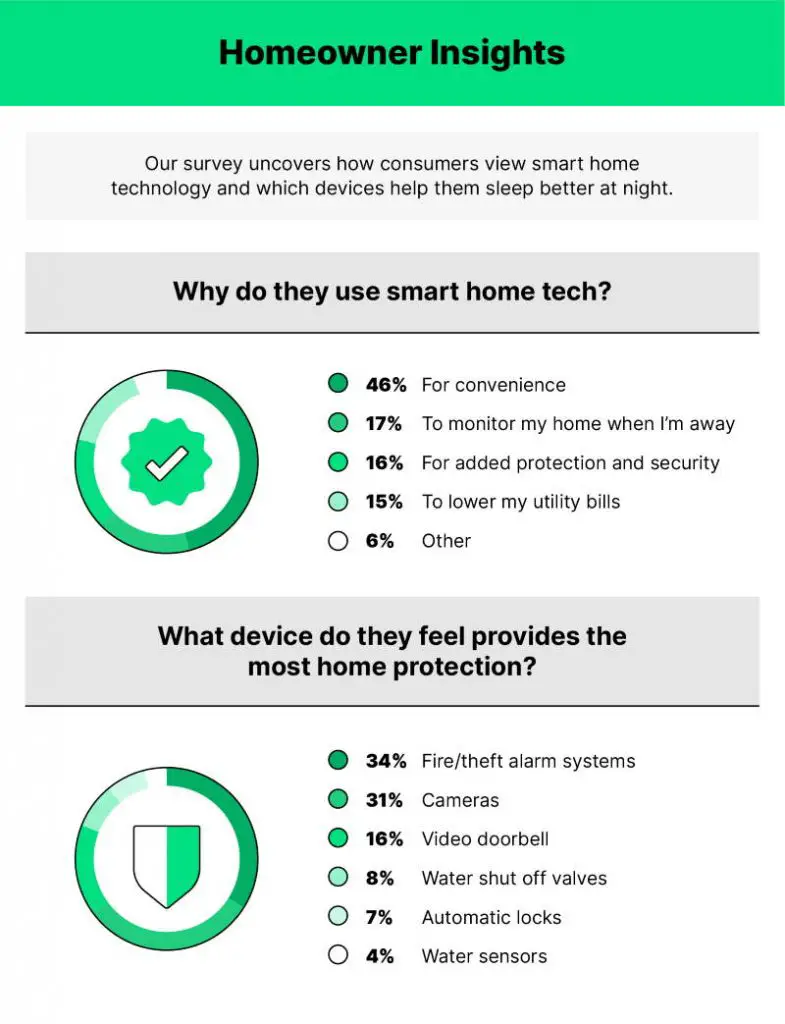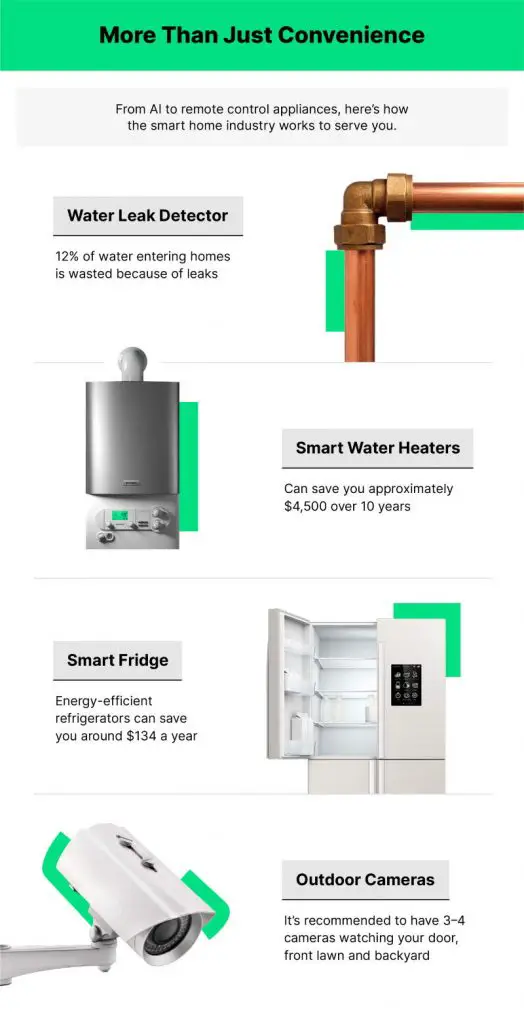By now, it’s common knowledge that smart home devices can help with a variety of daily tasks. From asking your Alexa device what song is playing to checking your phone to see who just rang your doorbell, more people are buying smart devices to fill a variety of life needs and interests.
With increased technology, though, people have also begun to see the environmental benefits of these devices. Smart home devices can help regulate home temperature, reduce water use, and conserve energy, among other things.

In fact, in a smart home stats and survey post by Hippo, 15% of smart home users cited lowering utility bills as a key driver in smart tech use – within 1% of people who use these devices for added protection and safety at home.
This shows a growing number of people who want to use these devices to lower utility bills, and that these costs are just about as important to people as added protection.
Benefits of smart home devices
So, how exactly can these devices help conserve energy and lower utility bills? In a variety of ways.

1. Water Leak Detection
About 12% of the water that enters a home is wasted because of water leaks. Just like smoke detectors are common throughout a home, it’s best practice to also have a water leak detector in places these leaks might occur, such as a laundry room, bathroom, and kitchen.
These devices are able to detect a drop in water pressure, a rise in humidity, or a frozen pipe risk and send an alert to your phone. Some smart water detectors are even able to automatically shut off the valve to stop more water from leaking.
2. Smart water heaters
A hot shower is one of life’s simple pleasures – but it comes at a cost. The ability to take a hot shower whenever you want to means that your home’s hot water heater is constantly working to keep the water warm. And heating water is the second-largest household expense, and a huge energy waster.
A smart water heater eliminates this work and allows you to intentionally set times that the water should be warm depending on your schedule. You can also adjust the output temperature from your phone.
3. Smart fridge
The selling point for smart fridges is that they will text you when you’re out of milk, or ping you when they’re left open. But behind the flashy communication benefits, there is an environmental one.
Refrigerators are running 24/7, which means they are continuously using energy to keep your food cool. Smart fridges often cut down on energy use, setting the fridge to limit defrost cycles and only use energy when absolutely necessary.
Paving the way toward the future with smart home devices means ensuring there is a future by focusing on the environment. In addition to adding convenience to our daily lives, smart devices are also able to limit energy use and alert us when we’re using too much water or energy.
- Space Shuttle Endeavour’s Touchdown Meets Columbia’s Salute [An amazing photo from the past] - February 29, 2024
- Moon Landings: All-Time List [1966-2024] - February 23, 2024
- From Orbit to Ordinary: 10 Earthly Applications of Space Technology - January 23, 2024
